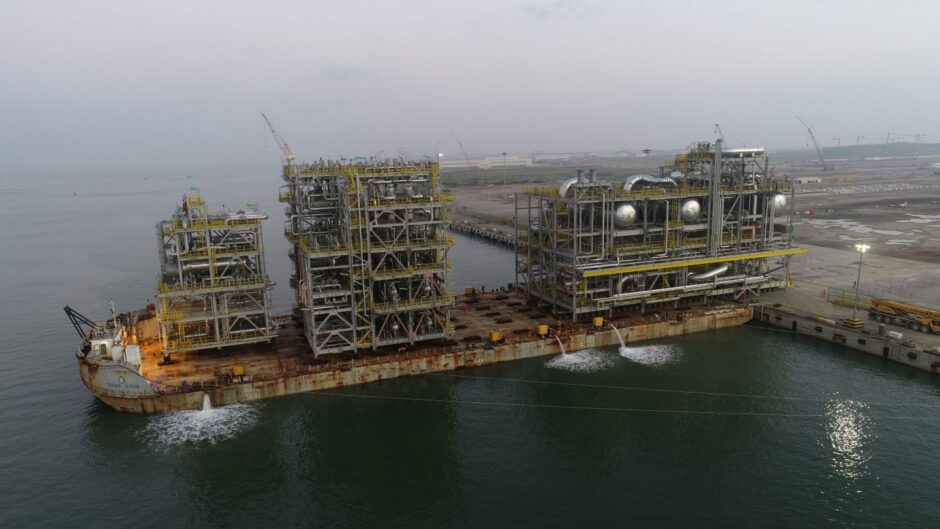
Kuwait has started up its giant Al-Zour refinery, Kpler has reported IIR Energy as saying. One crude distillation unit (CDU) at the 615,000 barrel per day plant started up a few days ago, it said.
Kuwait Integrated Petroleum Industries Co. (KIPIC) began test runs on one of the three 205,000 bpd CDUs. The first CDU should be fully commissioned by early July, with testing continuing in the interim.
The second and third CDUs will reach commercial operations in October and December, IIR said. KIPIC is a subsidiary of Kuwait Petroleum Corp. (KPC).
Homayoun Falakshahi, senior commodity analyst at Kpler, said starting up Al Zour will have a “lasting impact” on Kuwait’s oil exports. Starting up the first CDU has reduced Kuwaiti exports already, down 101,000 bpd from May to 1.75 million bpd.
“We expect Kuwaiti oil exports to fall below 1.4mn bpd by year-end, further intensifying the shortage of medium sour barrels,” Falashahi said.
Reducing medium sour Kuwait Export Blend will have a particular impact on refiners in Eastern Asia, he continued. The analyst named Vietnam, Japan and South Korea as seeing an impact already.
Product flows
While crude exports will fall, product exports will rise. Kpler expects Middle Eastern diesel supply to rise to 3.1mn bpd in the third quarter, up 100,000 bpd from the second quarter.
This will have an impact on European prices. The NW Europe 10 ppm ULSD crack is around $50 per barrel, Kpler calculates on Argus data. In 2021, this stood at $8 per barrel.
Al Zour should produce around 18,000 bpd of naphtha, 62,000 bpd of diesel and 53,000 bpd of kerosene by July, according to IIR. This will rise in October and December as more units come online. By the end of the year, it predicted naphtha flows of 36,000 bpd, diesel of 186,000 bpd and kerosene of 106,00 bpd.
Local news agency Al-Rai reported this week that KPC is in talks with Japan and a group of banks to borrow $1 billion. The company plans to use the cash to support production, Kuwaiti Minister of Oil Mohammed Abdul Latif Alfaris said in Parliament. The banks involved include HSBC and JP Morgan.
The minister said KPC had a “financial deficit” owing to its distribution of profits. As a result, it is seeking external finance.
“The financing plan includes various debt instruments, including financing through export credit agencies,” he said.

